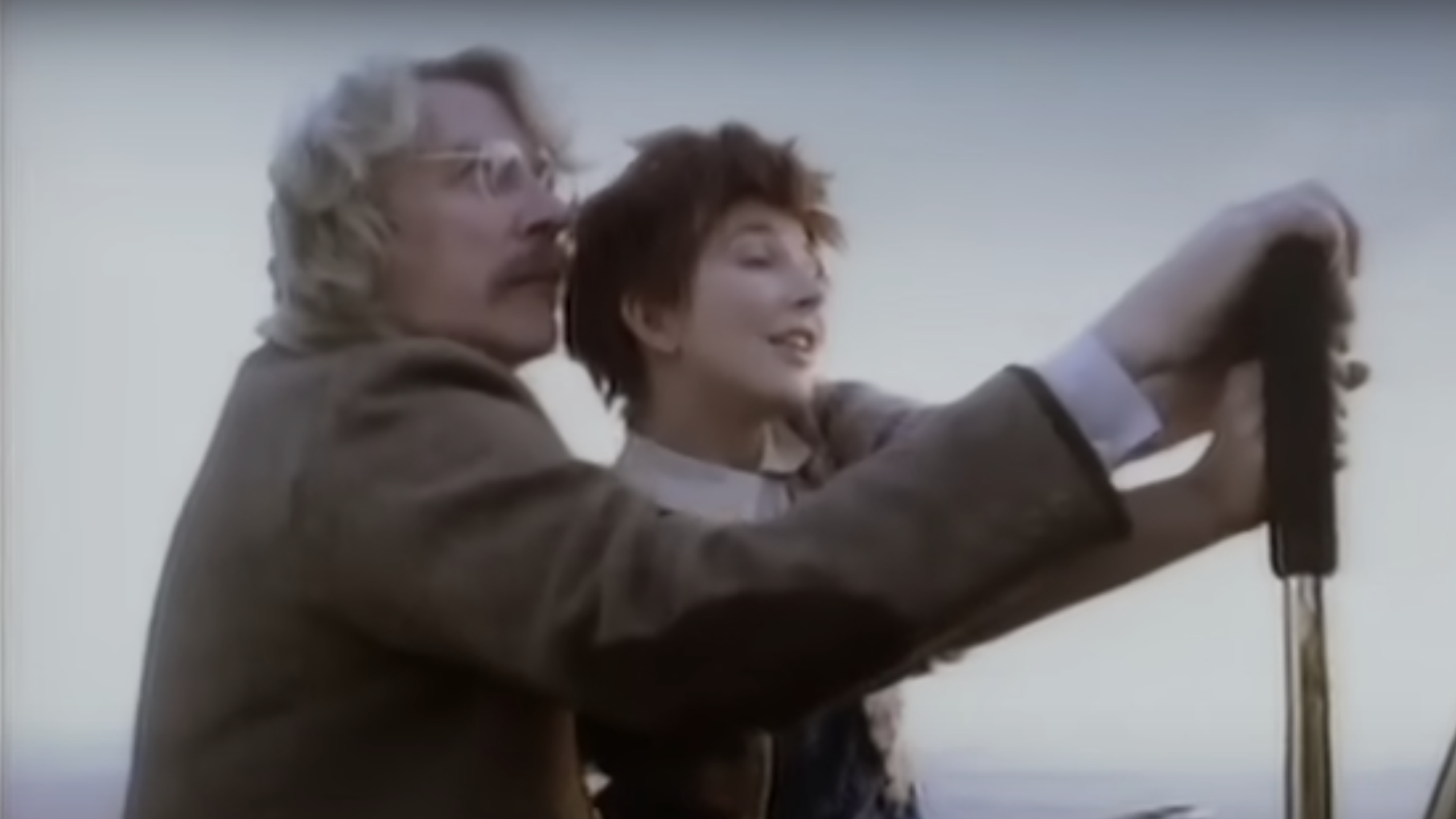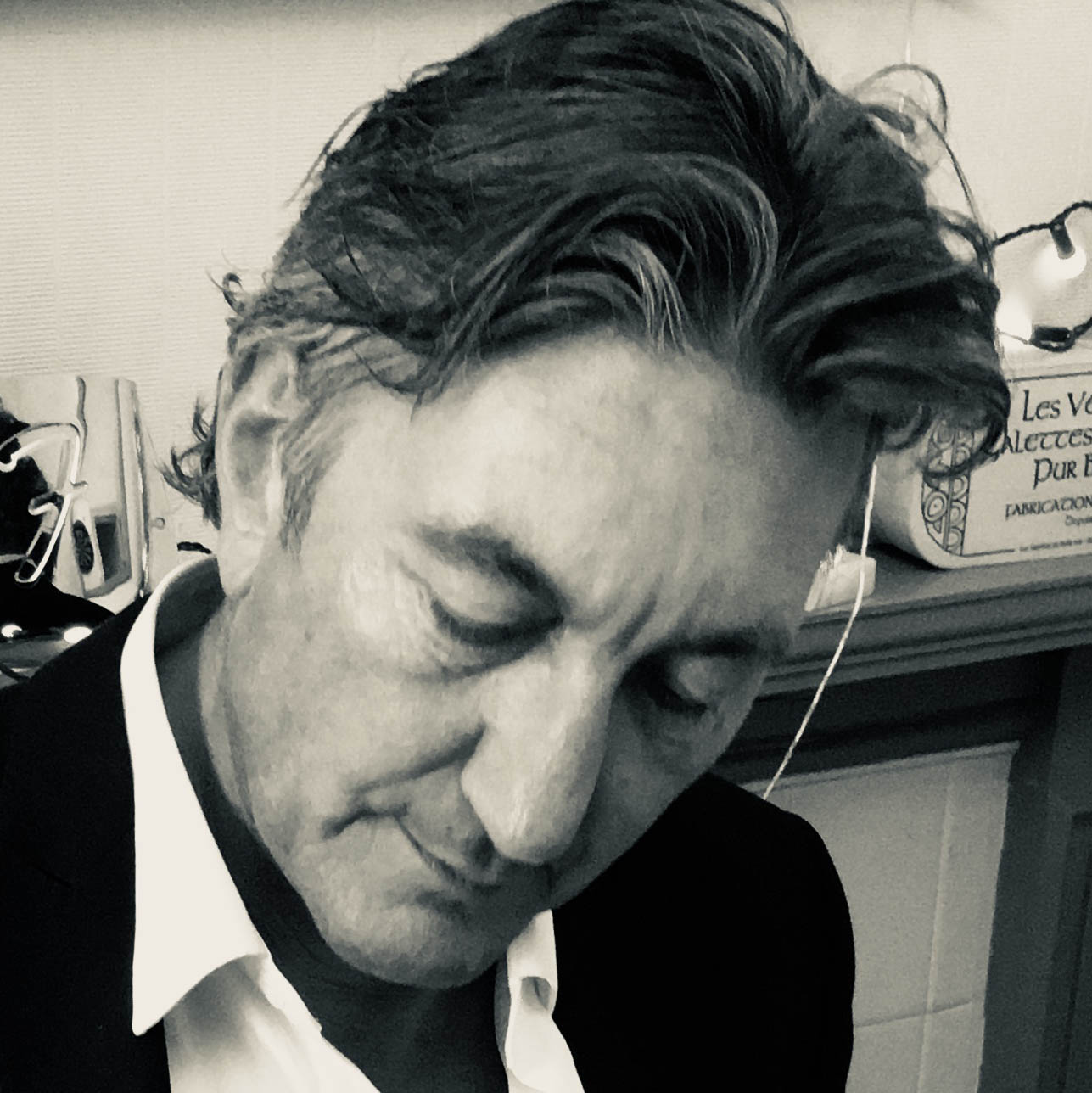“I sit at my piano and watch skies moving and trees blowing and that’s far more exciting than buildings and roads and millions of people”: The strange story of the Kate Bush classic Cloudbusting
“The stimulus of the countryside is fantastic,” she said

One afternoon in 1985, Donald Sutherland was enjoying the rarefied tranquility of Suite 312 at London’s Savoy Hotel, when there was an unexpected knock at the door.
With its panoramic view over the River Thames, Suite 312 was the Canadian actor’s favourite place to stay when in London, due to its position and the way it made him feel, in his words, “so cosseted, so private”.
The knock at the door was a rare event. The Savoy’s floor butler was usually the only one who ever knocked.
When Sutherland opened the door, standing in front of him was Kate Bush.
“She wanted to explain what her video was about,” said Sutherland in a 2015 interview with Dazed magazine. “I let her in.”
Weeks earlier, Bush had approached a mutual contact to ask Sutherland if he would appear in the video for her forthcoming single Cloudbusting. Sutherland promptly declined the offer, so Bush decided to pay him a visit to try and change his mind.
Cloudbusting was inspired by author Peter Reich’s 1973 memoir, A Book of Dreams, which Bush had found profoundly moving.
Want all the hottest music and gear news, reviews, deals, features and more, direct to your inbox? Sign up here.
The book charts Reich’s relationship with his father, Austrian-American psychoanalyst, physician and philosopher Wilhelm Reich.
The song and video revolve around Wilhelm’s experiments with his ‘cloudbuster’, a machine that he pointed at the sky in the hope that it would create rain showers.
“I wanted it to be a piece of film rather than a video promotional clip,” Bush told MTV in 1985. “I wanted it to be a short piece of film that would hopefully do justice to the original book and let people understand the story that couldn’t really be explained in the song.
“So we wanted a great actor. We thought of Donald Sutherland.”
Bush explained the song to Sutherland and her idea for the short film – directed by Julian Doyle and conceived by Bush and Terry Gilliam – in which she would play Peter Reich and Sutherland would play his visionary father.
“She sat down, said some stuff,” continued Sutherland. “All I heard was ‘Wilhelm Reich’. I’d taken an underground copy of his The Mass Psychology Of Fascism with me when I went to film [Bernardo] Bertolucci’s Novecento in Parma… Everything about Reich echoed through me.
“He was there then — and now he was here, sitting across from me in the person of the very eloquent Kate Bush. Synchronicity. Perfect.
“She talked some more. I said okay and we made Cloudbusting. She’s wonderful, Kate Bush. Wonderful. I love that I did it.”
Cloudbusting is a magnificent song, one that hones in on the touching relationship between father and son as seen through the boy’s eyes.
The resulting short film that Donald Sutherland co-starred in was a breathtaking visualisation of Bush’s retelling of Peter Reich’s story. 40 years on from its release, Cloudbusting has lost none of its emotive power and it stands as one of Kate Bush’s finest, most enduring works.
The song was released on 14 October 1985 as the second single from Hounds Of Love, Bush’s fifth album, which marked her return to the public eye after the relatively poor sales of her 1982 album, The Dreaming.
Hounds Of Love is considered by many critics and fans as Kate Bush's best album.
Writing and recording of the album began in the summer of 1983, with Bush moving from her home in Eltham, south-east London, back to her parents’ idyllic 17th-century farmhouse in Wickham, in the Kent countryside, where she had created a home recording studio in an adjacent barn.
“The stimulus of the countryside is fantastic,” she said at the time, as reported in Uncut magazine in 2014. “I sit at my piano and watch skies moving and trees blowing and that’s far more exciting than buildings and roads and millions of people.”
Bush first chanced upon Peter Reich’s book in an occult bookshop.
“It was just calling me from the shelf, and when I read it I was very moved by the magic of it,” she said. “It’s about a special relationship between a young son and his father.”
The Cloudbuster – a bizarre contraption consisting of metal tubes and pipes placed in a large drum of water – wasn’t the first machine the Wilhelm Reich had invented.
By the 1950s, he had developed the orgone accumulator, a metal-lined device that Reich believed could harness the sexual energy of his patients as a supposed universal life force.
But amid the moral panic of McCarthy-era America, Wilhelm Reich’s experiments were viewed with deep suspicion by the US authorities, who brought an injunction compelling him to destroy all orgone accumulators.
When Reich failed to comply, he was jailed in 1957 for contempt of court and died months later of cardiac failure at Lewisburg Penitentiary, Pennsylvania, aged 60.
Peter Reich’s book is an extraordinarily touching account which focuses on his father’s arrest and imprisonment, and Peter’s sense of helplessness at being unable to protect his father.
Bush’s song opens with the boy emerging from a dream, as she explained in a piece by Robert Webb in The Independent.
Bush said: “It’s like setting a scene that immediately suggests that this person is no longer with someone they dearly love.”
The lyrics go on to recount the boy’s cloudbusting excursions with his father at Orgonon, the family’s 175 acre farm-come-laboratory and research centre in Maine.
“They point big pipes up into the sky and they make it rain,” said Bush in The Independent. “But it’s very much more to do with how the son does begin to cope with the whole loneliness and pain of being without his father. It’s learning to cope with loss. I think, in a lot of ways, that’s what all of us have to cope with.”
Bush composed Cloudbusting and much of the album in her eight-track studio at Wickham using a LinnDrum, a Fairlight CMI synthesiser and a piano.
She wanted to retain the feel and atmosphere of this initial recording before having it transferred to 24-track when recording sessions for the album began officially in November, 1983.
Studio 2 at Abbey Road Studios was the setting for the recording of Cloudbusting and the Hounds Of Love album.
Bush sent an early treatment of the song to Peter Reich. “And when we were doing the vocal, she got a letter back from him saying he loved the idea of what she was doing,” recalled Haydn Bendall, one of three principal engineers on the Hounds Of Love album, in a 2014 feature in Uncut magazine.
Bush recorded the track with the Medici string sextet and the strings were arranged by David Lawson.
Two session drummers were used on the song – Stuart Elliott, the original Cockney Rebel drummer who had played on the previous four Kate Bush albums and would work with artists such as Paul McCartney and Al Stewart among others – and Charlie Elliott, who had played on Bush’s 1978 album Lionheart and would work with the likes of Elton John and McCartney.
Bush produced the song, sang lead and backing vocals, played keyboards and also arranged the strings with David Lawson.
Backing vocalists were her brothers Paddy Bush and John Carder Bush, as well as Del Palmer and Brian Bath.
Strident stabs of cello and tribal drums provide the backbone of the song with its compelling strings melody. “Every time it rains,” sings Bush, “You’re here in my head/Like the sun coming out”.
Such optimism is soon tempered by the reality of the fate that awaits Reich’s father. “You could see them coming/You looked too small/In their big black car/To be a threat to the men in power.”
To her credit, Bush steers well clear of the kind of production bombast that was prevalent at the time, maintaining an uncluttered, spacious mix.
One minute in, her voice really opens up into a wide, rich timbre on the line: “Ooh, I just know that something good is going to happen.”As the hypnotic, circular string motif moves onwards, flitting violin melodies dance above it all, a light, playful contrast to the sombre cello stabs beneath.
It all makes for a defiantly unique sound as the emotional premise of the song shines through.
As writer Amy Hanson put it in a retrospective review of the song on AllMusic, the startling achievement here “is the ease with which Bush was able to capture the moment when a child first realises that adults are fallible and the parental cocoon is tenuous at best”.
Hanson noted that the song’s brilliance was further heightened by an outstanding 12-inch extended mix, which like the album, was impeccably produced by Bush.
This mix, she noted “kept the song’s hypnotic mantric effects and then transcended them without resorting to any of the pointless rock-ish filler that more often than not plagued such releases”.
Cloudbusting was released on 14 October 1985 and spent eight weeks in the UK Singles Chart, peaking at No. 20.
Its modest chart position belies its greatness.
The song was light years away from the big hair power ballads and synth pop tunes that pervaded the charts at the time.
The composition and the production are timeless and it sounds as compelling and atmospheric as the day it was released.
Haydn Bendall has fond memories of the sessions for Cloudbusting in Studio 2 at Abbey Road and in particular Kate Bush’s vocal takes.
“Recording her voice on that was just fabulous” he told Uncut magazine in August 2014. “We’re used to effects in the studio and computer graphics in films, but when Kate stands in front of the microphone and sings it takes your breath away.
“It’s a huge privilege,” Bendall continued. “She’s quite softly spoken and laughs a lot and is very joyous, but she takes on these different personae when she’s singing.
“She’s an actress as well as a singer."

Neil Crossley is a freelance writer and editor whose work has appeared in publications such as The Guardian, The Times, The Independent and the FT. Neil is also a singer-songwriter, fronts the band Furlined and was a member of International Blue, a ‘pop croon collaboration’ produced by Tony Visconti.
You must confirm your public display name before commenting
Please logout and then login again, you will then be prompted to enter your display name.